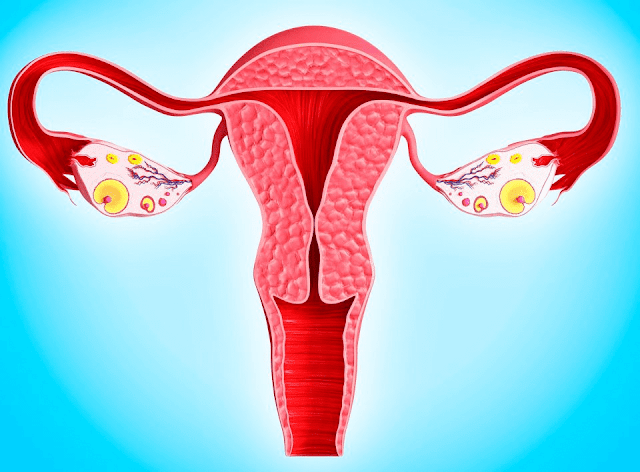Ovarian Cancer End Stage Symptoms
Ovarian cancer end stage - Of all the symptoms of end-stage ovarian cancer, pain is one of the most common. This pain is usually isolated in the pelvis of the body, but can also manifest as an actual pressure in the abdomen of a woman. With one of these sensations, the pain or pressure can eventually spread in the lower back, and both can vary in intensity from dull sharp, but often persistent in nature.
The pain is often occur with a urinary change. These changes vary from each woman but usually lead to an increase in both frequency and urgency when urinating. Any pressure from a nearby tumor or cancer cells that the bladder can reduce the urinary capacity of the organ, disrupt its normal function.
Ovarian cancer end stage can also cause changes in a woman's bowel movement. For the most part, these changes are due to an obstruction by a tumor that causes stool to be blocked and produces constipation. As the stool is left in the colon, more and more liquid is leeched from its composition, and the stool becomes even harder to fit. However, other women suffer from loose watery stools due to cancer, the disease can contract the colon more often than normal of stool at a much faster rate.
Many times, ovarian cancer end stage causes menstrual changes. This often means more irregular or missed periods, but can also manifest as longer heavier flows.
It is not uncommon for ovarian cancer end stage to cause digestive problems. This is largely because of the location of the ovaries and the natural progression of the disease. Since woman's reproductive system is so close to her digestive tract, the cancer can begin to affect the overall function of the stomach and intestines, triggering nausea, indigestion and even vomiting. For some women, they may also have a change in appetite, becoming less hungry or unable to complete meals.
As with virtually any cancer, ovarian cancer end stage often causes exhaustion and fatigue. But unlike "normal" exhaustion and fatigue this symptom is chronic in nature and does not show any improvement after rest periods.
The pain is often occur with a urinary change. These changes vary from each woman but usually lead to an increase in both frequency and urgency when urinating. Any pressure from a nearby tumor or cancer cells that the bladder can reduce the urinary capacity of the organ, disrupt its normal function.
Ovarian cancer end stage can also cause changes in a woman's bowel movement. For the most part, these changes are due to an obstruction by a tumor that causes stool to be blocked and produces constipation. As the stool is left in the colon, more and more liquid is leeched from its composition, and the stool becomes even harder to fit. However, other women suffer from loose watery stools due to cancer, the disease can contract the colon more often than normal of stool at a much faster rate.
Many times, ovarian cancer end stage causes menstrual changes. This often means more irregular or missed periods, but can also manifest as longer heavier flows.
It is not uncommon for ovarian cancer end stage to cause digestive problems. This is largely because of the location of the ovaries and the natural progression of the disease. Since woman's reproductive system is so close to her digestive tract, the cancer can begin to affect the overall function of the stomach and intestines, triggering nausea, indigestion and even vomiting. For some women, they may also have a change in appetite, becoming less hungry or unable to complete meals.
As with virtually any cancer, ovarian cancer end stage often causes exhaustion and fatigue. But unlike "normal" exhaustion and fatigue this symptom is chronic in nature and does not show any improvement after rest periods.
*Image source : The Sun
References :

Post a Comment for "Ovarian Cancer End Stage Symptoms"